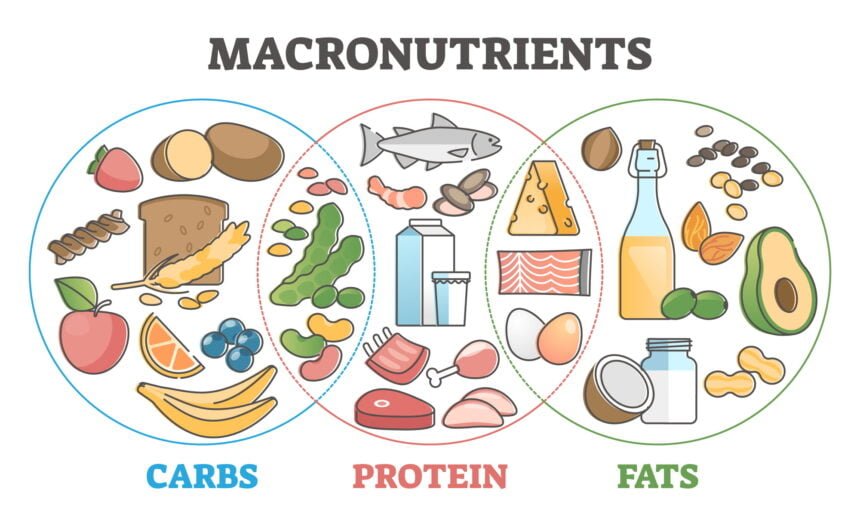Have you ever thought of tracking your macros or how important it is to do so? To lose weight, you need to burn more calories than you consume daily. In this light, counting the macros you consume helps you know those calorie-monitoring techniques that are beneficial and their overall impact on your body.
But how can you do this without spending an arm and a leg in a medical facility? One of the best ways is to use the Lumen Metabolism Tracker. However, this is only a suggestion, and you can decide whether or not to use the tool after reading this in-depth Lumen review.
What are Macros, and Why Should You Count Them?
Macros—short for macronutrients—refer to the three vital food groups you require to perform numerous activities. These three macros perform different nutrition roles in the human body and affect it in unique ways, depending significantly on their rate of digestion.
Understanding your body’s natural reaction to every macronutrient is crucial. It helps you develop the right diet plan to give your body sufficient energy while supporting weight loss, muscle growth, and a healthy weight.
Therefore, tracking the macronutrients you consume should be at the top of your health-giving list. Macro tracking, otherwise known as flexible dieting, involves consuming carefully-selected foods without denying your body the essential nutrients it needs.
By counting macros, you satiate your body, lose stubborn fat, and gain or maintain lean muscle mass; but this doesn’t imply that you’re eating healthy. For example, you can easily attain your macro goals without consuming vegetables. Therefore, pay more attention to what you ingest and not only the number of calories.
A macronutrient diet doesn’t include minerals, antioxidants, vitamins, or phytochemicals — these are essential nutrients vital for excellent health. Nevertheless, it’s a foundational block to kickstarting your fitness goals. The food you ingest must contain proteins, carbohydrates, and fat — these are the primary building blocks that fuel life daily.
Counting macros involves consuming a specified quantity of each macronutrient to meet your goals. Selecting the amount of each food group should be based primarily on your caloric needs.
The Benefits of Tracking Your Macronutrients
You can learn to count macronutrients from this post on Healthline. However, you probably want to know why you would do so in the first place, so we will answer that question in the following content. From effective muscle building to maintaining a proper weight, the following paragraphs outline the perks of monitoring your macronutrients:
1. Prevention of nutritional deficiencies.
Focusing only on the calories in the food you consume makes it easier to overlook their nutritional content. However, macro tracking ensures you ingest only the right amount of nutrients. This helps you avoid or prevent infections, depression, and even weaknesses.
2. A knowledge of what you consume.
Tracking your macronutrients for at least a few weeks is an excellent way of discovering and understanding your food intake. As a result, spotting significant changes in your weight loss journey becomes easier, and you can readily make the adjustments required to attain your fitness objectives.
3. Helps to maintain a proper weight.
Counting your macronutrients is highly essential if you want to maintain a moderate and healthy weight. A starch-based carbs diet can decrease your body’s overall fat percentage by up to 7–15%. This also has the additional benefit of reducing the usual complications that result from obesity.
When you track the quantity of food/nutrients you consume for an extended period, you end up maintaining the ideal weight. Reaching your desired fitness goals becomes a walk in the park.
However, when exercising, ensure your diet is loaded with plenty of proteins, i.e., 1.4–2 grams per kilogram of your overall weight, to ensure the desired muscle mass.
4. Impacts your metabolic rate.
Metabolism implies the rate at which the human body converts food consumed into useful energy. It’s highly fundamental when it comes to weight management.
Macros have different impacts on your metabolism. The most complex macronutrient is protein, which has the most effect on your metabolism. Namely, proteins can boost your metabolic rate by about 15–30%.
Similarly, carbohydrates can significantly increase your metabolic rate by approximately 5–10%, while fat can do the same only by 0–3%.
5. Efficient muscle-building.
As stated earlier, every macronutrient affects the preservation and muscle-building processes differently. Therefore, a high-protein diet should be your top priority if your primary goal is to maintain proper weight while building muscles.
High protein intake also assists in repairing damaged muscles while supporting the existing ones, in addition to building lean muscles.
Conclusion
We can’t overstate the importance of tracking your macronutrients. For one, you get to know the exact type of food/essential nutrients you consume per time while maintaining optimal health.
However, before engaging in any weight loss program or beginning a new diet, ensure you consult your physician. Your safety is paramount and should always be your top priority. You should also combine the new diet with a highly effective workout routine for maximum benefits.










